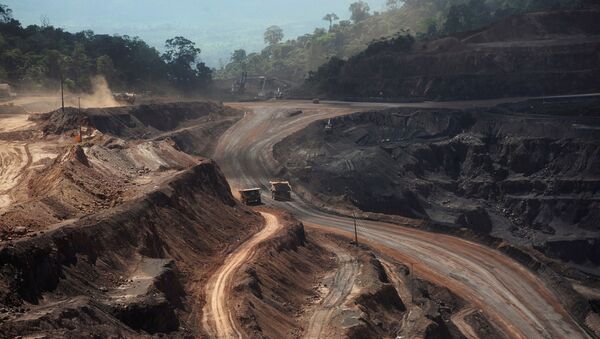The London Mining Network, an alliance of human rights, development and environmental activists, work in collaboration with mine workers and Indigenous communities affected by extractivist industries. Their new report Voices from the Ground: How the Global Mining Industry is Profiting from the COVID-19 Pandemic sets out what they say are worrying trends of mining corporations amid the COVID-19 pandemic, which represents "an immediate threat to the health and safety of communities" around the world.
Sputnik: Who are some of the main global mining conglomerates, especially those with links to the UK?
London Mining Network: Many of the world’s largest mining companies either have head offices in the UK or are listed on the London Stock Exchange. Perhaps the four most significant of these are Anglo American (with a revenue of US$29.87 billion (2019) and operations in 45 countries), BHP (revenue of US$44.288 billion (2019) and 43 operations across 8 countries), Glencore (revenue of US$215.111 billion (2019) and 150 operations across more than 35 countries) and Rio Tinto (revenue US$43.165 billion (2019) with operations across 36 countries).
The database we put together to develop the analysis for our report Voices from the ground: How the Global Mining Industry is Profiting from the COVID-19 Pandemic found that there were 13 UK mining companies, including the four biggest mentioned above, operating in 17 countries which had reported claims, complaints or conflicts associated to their behaviour during the early phases of the pandemic outbreak. However, this was only a snapshot, the total number could be much higher, and the overall impact unknown.
Sputnik: Explain how mining companies are (or are not) addressing the risks stemming from the COVID-19 pandemic.
London Mining Network: It is difficult to find examples of major mining companies taking appropriate action to address the risks of COVID-19. While several Annual General Meetings were replaced with online or remote events (see our write ups of the recent Rio Tinto and Anglo American AGM’s) to protect executives and shareholders from possible infection, similar care has not been taken at the majority of mines to protect mine-workers or local communities.
For example, the Cerrejón coal-mine in Northern Colombia (co-owned by Anglo American, BHP and Glencore) confirmed on 4 June at least three mine-workers had tested positive for the virus. Despite these individual workers being sent home, operations at Cerrejón continue.
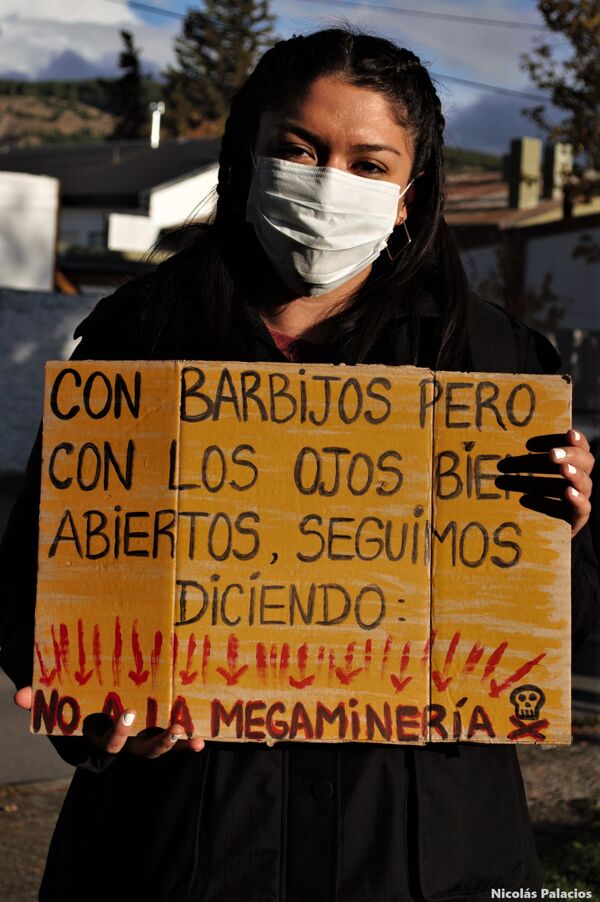
Similarly, the Antamina copper mine in Peru (which has involvement from both BHP and Glencore) reported its first positive cases on 31 March. Despite complaints from workers that others were becoming infected, the mine did not close until 13 April. At least 210 workers had been infected and one fatality [from COVID-19] reported by 30 April.
While all the major mining giants have prominently placed statements about COVID safety on their websites, none seem willing to take action that might affect their profits to protect the mine-worker whose work generated those profits in the first place.
Sputnik: To what extent are grievances from miners and affected communities being addressed during the COVID-19 pandemic?
London Mining Network: The grievances of mine-workers and mining affected communities have continued to be a low priority for major mining corporations during the COVID-19 pandemic. As the recent case of Rio Tinto’s destruction of a 46,000 year old Aboriginal land mark and subsequent non-apology illustrates, mining companies do not seem to think that now is a time for extra care.
To return to the case of Cerrejón, Indigenous Wayuu women have recently appealed to the UN in order to have the mine cease operations during the pandemic. This has become necessary despite the fact that Colombia’s [Constitutional Court] Guardiana de la Constitución has ruled in favour of the Wayuu people in previous cases against Cerrejón. The government and Cerrejón’s owners are well aware of the effects of the mining operations on the respiratory health and access to water of these communities, but still choose to keep Cerrejón open for business. A vulnerable community is being put at risk and deprived of water during a worldwide health crisis.
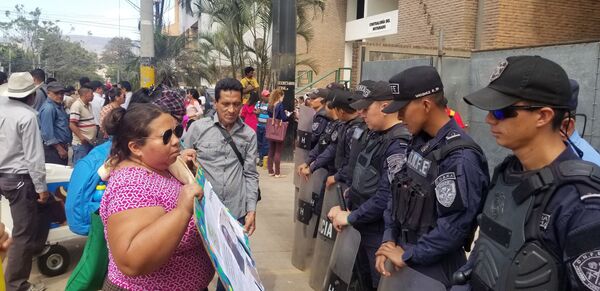
Sputnik: What does the London Mining Network mean when it says the mining industry is currently pushing regulatory change "that favours the industry at the expense of people and planet"?
London Mining Network: Mining companies have been framing their operations as “essential” now and for global post- COVID economic recovery, as well as lobbying to expedite administrative decisions and weaken the already-limited measures which do exist to address the impacts of their activities. Whether explicitly, by suspending the little environmental oversight and enforcement there was, or implicitly, by making it more challenging for affected communities to get information and intervene in permitting processes, governments are making deep concessions to the mining industry and companies are now lobbying governments to make such deregulation permanent.
In Indonesia, a new mining law that fails to address key environmental or human rights issues raised by indigenous communities was recently passed with no public participation or scrutiny. Instead, it allows for automatic contract renewal by private companies and removes the previous limit on the size of concessions.
In Australia, the advisory National Covid Coordination Commission has been stacked with members from mining, gas and energy backgrounds despite concerns about conflict of interest, lack of transparency, governance and accountability. A raft of pro-mining industry laws have been passed, including listing mining as an essential service and stripping the community of the right to challenge mining projects that damage the environment in the courts.
In Brazil too, the pandemic has been an opportunity to push through deregulation of environmental policies. On 13 April, the government fired two top employees of the federal environmental enforcement agency and on 8 May, environmental permits were granted to eleven new mining projects in the state of Minas Gerais.
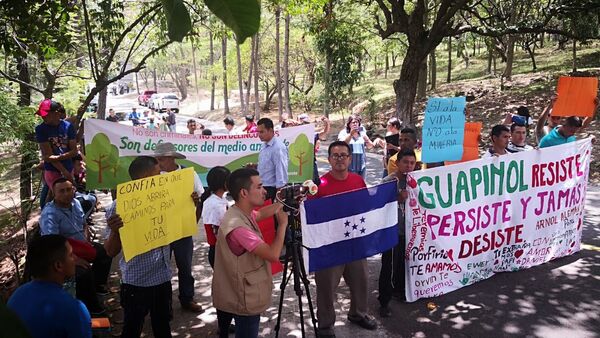
The above are just a few examples of how this moment of crisis and confusion is being seized upon by predatory extractive companies and their allies in government to bypass legal protections. Their profit margins are clearly more important to them than the safety of people or the future of the global environment.
Sputnik: London Mining Network has said that mining companies are “using the pandemic as an opportunity to whitewash their dirty track records”. Could you explain that further giving specific examples?
London Mining Network: Major mining companies have been quick to highlight whatever token efforts they have made to aid communities during the COVID-19 pandemic while failing to take responsibility for their past actions or take proactive and responsible measures that might affect their income.
Glencore, for example, have been proudly talking about their ‘Community Support Fund’ as a good PR exercise, but as recently as 9 June refused to pay out a Universal Payment to the community of Espinar, Peru near their Antapaccay Mine. This, despite the fact such a payment had been approved by the Committee for Management of the Framework Agreement back in May.
See also Cerrejón’s donation of a molecular biology lab to the efforts to fight COVID-19 on 11 June. While this was making news, just a day later leaders of the Indigenous Wayuu community who were coordinating emergency community aid were harassed by agents believed to be linked to local police and the mine.
Keeping mines open and projecting a positive PR image is, and has long been, the only real aim of mining companies. While they are happy to make tokenistic efforts to help people in a time of crisis if it means good headlines, they remain unwilling to commit to real action. A handful of stunts or gestures of goodwill does not make up for the history and continuation of abuse and destruction that these companies are responsible for.
This has become more and more evident as the global mining industry has sought to capitalise on the climate crisis. Industrial mining is a major, but largely hidden, contributor to the climate breakdown that is convulsing communities and ecosystems around the planet. Yet this same industry is aggressively promoting its harmful activities as a solution to the climate emergency. In a cynical attempt to capitalise on startling growth forecasts, mining companies are positioning themselves as key actors in the energy transition by claiming they will deliver the minerals and metals needed to meet growing renewable energy demand.
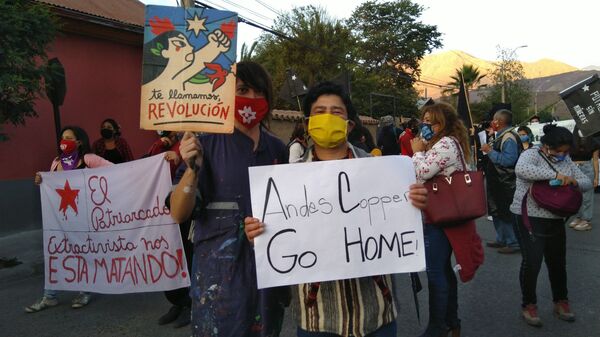
Sputnik: What if anything can be done to enhance the environmental and labour standards of British mining corporations?
London Mining Network: First and foremost, British mining corporations must start listening to and respecting the voices of workers, local communities and Indigenous people affected by their operations. So long as they continue to be driven purely by profit at the expense of these voices, any talk they indulge in on the topic of sustainability, labour standards or responsibility can only be considered green-washing without real substance.
We need to debunk the industry’s greenwashed claims. Non-fossil fuel mines are already eating up critical ecosystems globally, contributing up to 20% of global carbon emissions and displacing communities already vulnerable to climate shocks in the process. Expanding this destruction is incompatible with climate justice and planetary boundaries, and the solutions must be rooted in social and political, rather than purely technical, transformations.
Secondly, these companies must be held to account for the damage they have done and the abuses they have committed. This must come both from the communities on the front lines, and from those of us in these companies' “home countries”, acting in solidarity with those resisting extractivism in their own back yard. If they are able to act with impunity and without scrutiny on an international level, they will continue to do so.
As the world enters into critical conversations about economic recovery, we must fundamentally question the ‘essential’ nature of large-scale mining and whether it aligns with the principles for a Just Recovery. Do we want an economy that is organised around human well-being and ecological stability, or one that reproduces ecological destruction and social injustice for the pursuit of eternal growth and profit?

